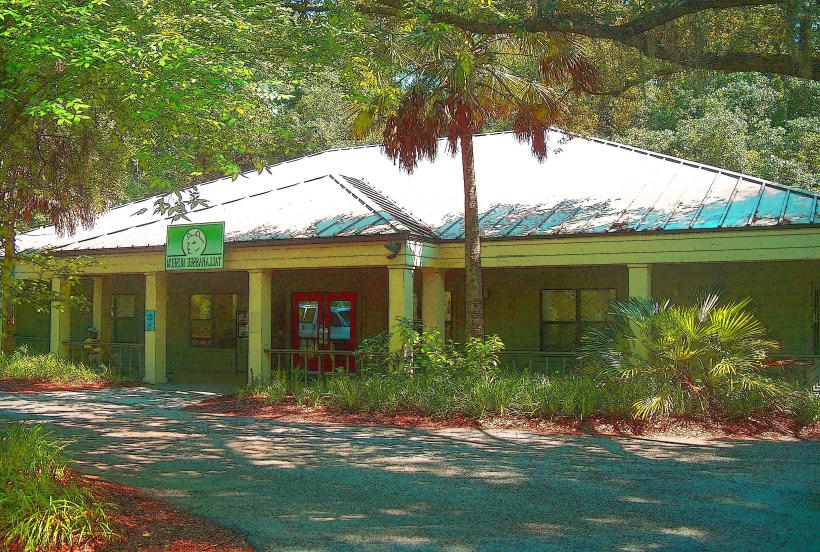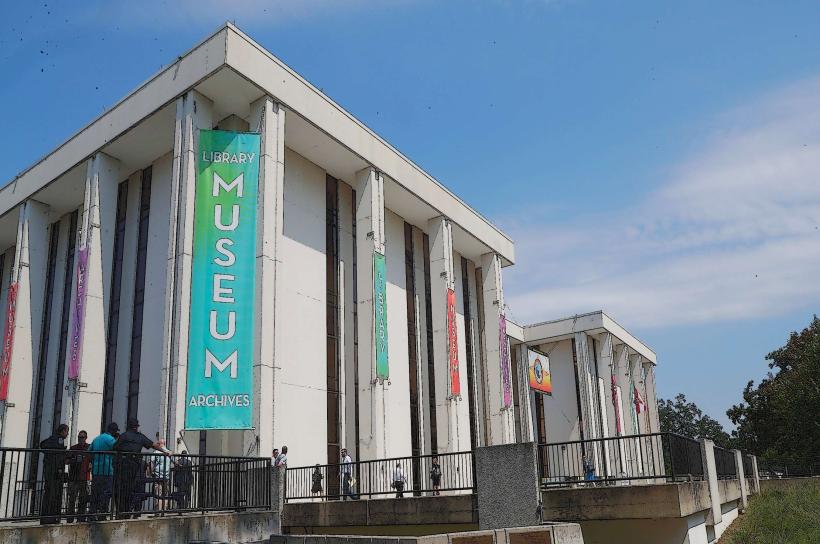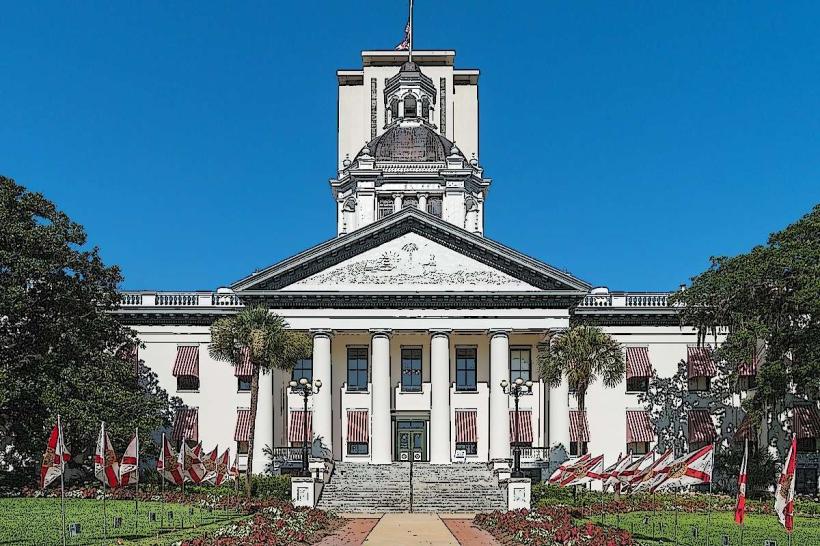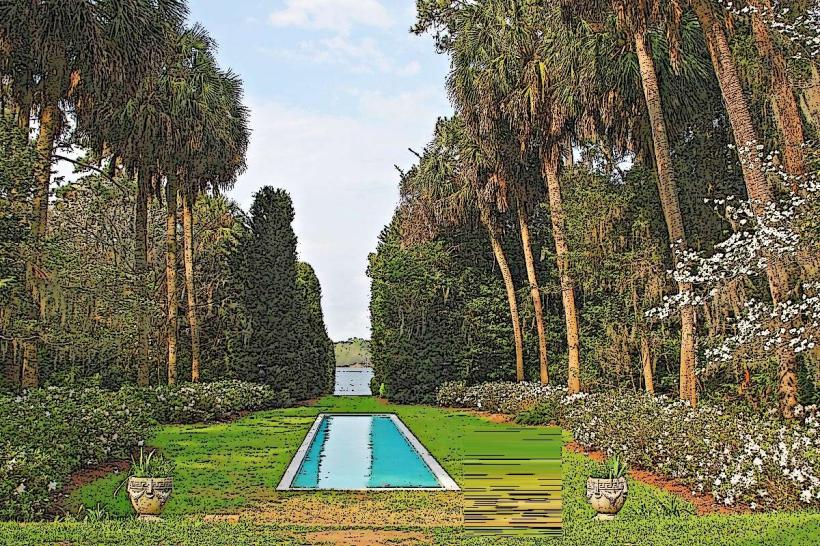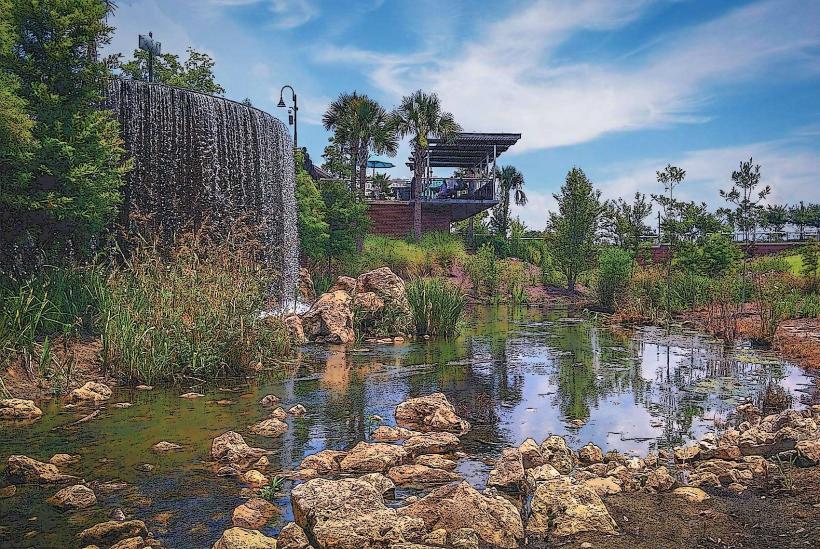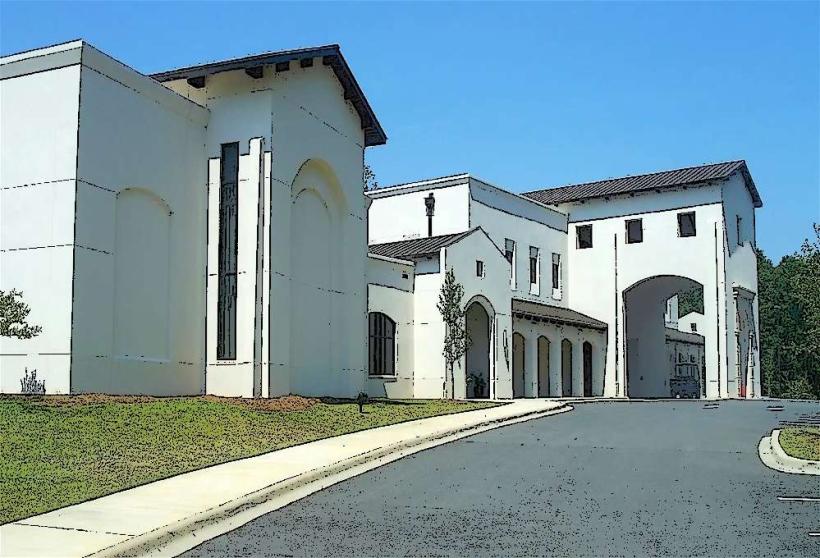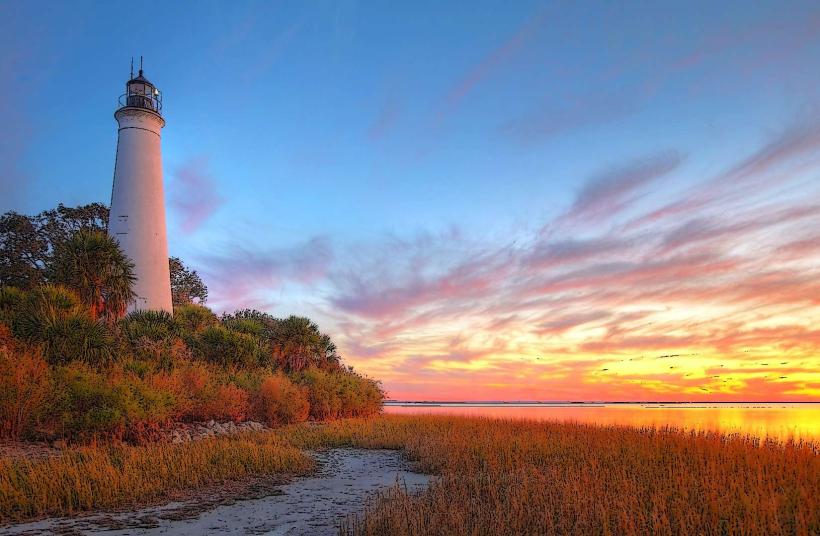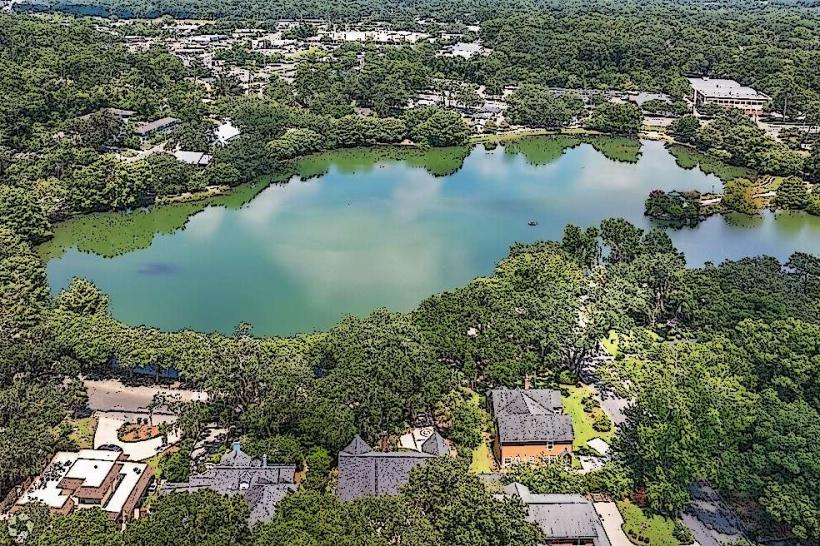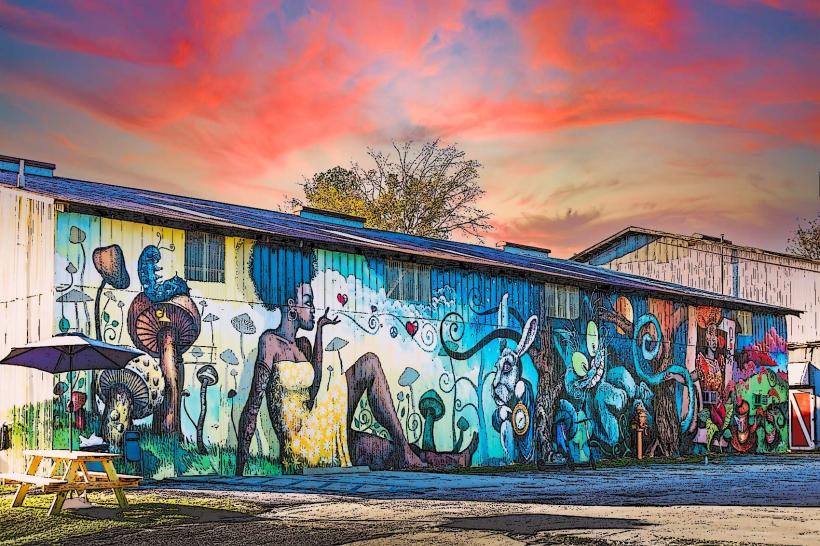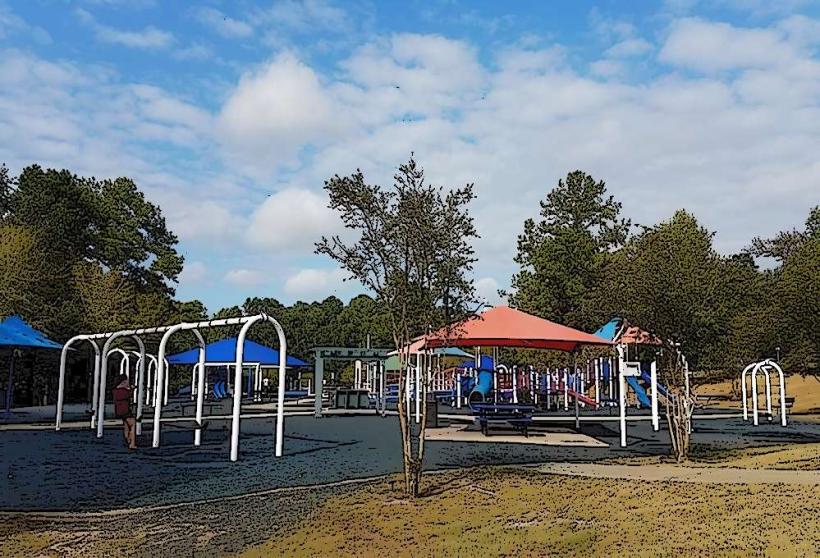Information
City: TallahasseeCountry: USA Florida
Continent: North America
Tallahassee, USA Florida, North America
Tallahassee, the capital city of Florida, is located in the northern part of the state, approximately halfway between Pensacola and Jacksonville. Known for its historical significance, governmental presence, and university culture, Tallahassee is a city that balances its political importance with a relaxed Southern charm. It is a vibrant city with a rich cultural heritage, surrounded by forests, lakes, and state parks.
General Overview
Tallahassee has a population of around 200,000, making it one of the mid-sized cities in Florida. It serves as the political and administrative center of the state, housing the Florida State Capitol and many state government offices. Despite being a political hub, the city is also known for its academic institutions and natural beauty. As the home to Florida State University (FSU) and Florida A&M University (FAMU), Tallahassee enjoys a youthful, college-town atmosphere with strong ties to education and research.
Geography and Layout
Tallahassee is situated on the Red Hills region of Florida, which is characterized by rolling hills, forests, and wetlands. It is known for its natural beauty and is often referred to as the "City of Oaks" because of the many live oak trees that line its streets and parks.
Lakes and Parks: The city is surrounded by lakes like Lake Jackson and Lake Talquin, as well as several state parks, including Alfred B. Maclay Gardens State Park and St. Marks National Wildlife Refuge, offering plenty of opportunities for outdoor activities such as hiking, fishing, and birdwatching.
Rolling Hills: Unlike much of Florida, Tallahassee is located in a region with elevation changes, which gives the area a slightly different feel compared to the flatter landscapes typical of most of the state.
Forests and Green Spaces: Tallahassee is often noted for its abundance of greenery, including forests and nature reserves that are ideal for outdoor enthusiasts.
Demographics
Tallahassee has a diverse population, with a mix of college students, government workers, and families. It has a reputation for being a progressive, yet traditional city with a relatively younger demographic due to the influence of the universities.
White (non-Hispanic): Approximately 50%
African American: Around 40%
Hispanic/Latino: About 5%
Asian: Less than 3%
Median Age: The median age in Tallahassee is about 33 years, which reflects the large number of students and young professionals living in the city due to the universities.
Educational Attainment: Tallahassee has a highly educated population, as the city is home to Florida State University, Florida A&M University, and several other educational institutions.
Climate
Tallahassee has a humid subtropical climate, with long, hot summers and mild, short winters:
Summers: Summers are typically hot and humid, with temperatures frequently reaching 90°F (32°C) or higher. Afternoon thunderstorms are common, bringing relief to the heat.
Winters: Winters are mild, with temperatures generally ranging from 40°F (4°C) at night to 60-70°F (15-21°C) during the day. Frost and freezing temperatures are rare but can occur on occasion.
Rainy Season: The rainy season runs from late spring through summer, with the heaviest rainfall usually occurring in June, July, and August.
Hurricane Risk: While Tallahassee is further inland compared to coastal cities, it is still susceptible to the effects of hurricanes and tropical storms. Historically, Tallahassee has been hit by hurricanes, but direct impacts are less frequent than those on the coastline.
Humidity: The city experiences high humidity levels year-round, which can make the summer temperatures feel even hotter.
Economy
Tallahassee’s economy is driven by several key sectors, including government, education, and healthcare:
Government: As the state capital, a large portion of the city's workforce is employed in state government, which includes roles in legislation, administration, and public policy. The Florida State Capitol and many government offices are located here, making the city a hub for political and administrative activities.
Education: Tallahassee’s two major universities, Florida State University (FSU) and Florida A&M University (FAMU), play a significant role in the local economy, contributing to research, innovation, and job creation. The presence of these institutions also supports the city’s economy through education-related jobs, events, and tourism.
Healthcare: Tallahassee is home to several healthcare institutions, including Tallahassee Memorial HealthCare and FSU's College of Medicine, which make healthcare a significant sector of the city's economy.
Retail and Hospitality: Tourism, driven by government-related activities, events at the universities, and outdoor recreation, is another important economic driver. The hospitality industry benefits from the many visitors to the state capital, as well as the city’s attractions.
Technology and Research: Tallahassee is seeing growth in the technology and research sectors, particularly due to the collaboration between universities, government agencies, and the private sector.
Infrastructure and Transportation
Tallahassee is well-connected by road and offers various transportation options for residents and visitors:
Roads and Highways: The city is located at the intersection of Interstate 10 (I-10), which runs east-west, and U.S. Route 27, which runs north-south. These major highways make Tallahassee accessible from both the Panhandle and central Florida.
Public Transit: StarMetro operates the city’s bus system, providing public transportation around Tallahassee. Although the city is spread out, the bus network offers reliable service, particularly in and around downtown and the universities.
Tallahassee International Airport (TLH): The airport serves the city with flights to major U.S. cities, providing air travel options for both residents and visitors. It's a smaller airport but well-connected for regional travel.
Rail: Tallahassee is served by Amtrak, with the Silver Meteor route connecting the city to other parts of Florida and the East Coast, although rail service is not as frequent as other forms of transportation.
Education
Tallahassee is known for its strong education system, which includes both public and private institutions:
K-12 Public Schools: Tallahassee is served by Leon County Schools, which operates a number of elementary, middle, and high schools in the city. The district is known for having several high-performing schools, including Leon High School and Chiles High School.
Private Schools: There are also private school options in Tallahassee, including The Maclay School and Holy Comforter Episcopal School.
Higher Education: The city is home to Florida State University (FSU), one of the largest public universities in the United States, and Florida A&M University (FAMU), a historically Black university. Both universities are major contributors to the local economy and cultural life. Tallahassee Community College (TCC) also provides accessible higher education options for students in the region.
Arts, Culture, and Lifestyle
Tallahassee has a rich cultural scene, with a mix of historical landmarks, museums, live music, and festivals:
Historic Districts: Tallahassee is home to several historic districts, including Downtown Tallahassee, which features preserved architecture, museums, and monuments reflecting the city’s long history.
Museums: The Florida Historic Capitol Museum, Mary Brogan Museum of Art and Science, and the Museum of Florida History are just a few examples of the city’s cultural offerings.
Music and Performing Arts: Tallahassee has a lively arts scene, with the Tallahassee Symphony Orchestra, Theatre Tallahassee, and FSU’s School of Music offering a variety of performances. The city hosts the annual Tallahassee Film Festival, attracting filmmakers and artists from around the country.
Outdoor Activities: The city is surrounded by parks, forests, and lakes, offering many opportunities for hiking, biking, and fishing. Apalachicola-Chattahoochee-Flint (ACF) River Basin is also nearby, providing access to kayaking and boating.
Events and Festivals: Tallahassee is known for its festivals and events, such as Springtime Tallahassee, Tallahassee Jazz Festival, and the Gadsden Arts Center & Museum exhibitions, celebrating the city’s vibrant arts and culture.
Housing and Real Estate
Tallahassee offers a range of housing options, from historic homes to modern apartments:
Historic Homes: Tallahassee has several neighborhoods with historic homes, particularly around the downtown area and Old Town. These homes often feature traditional Southern architecture and are sought after for their character and proximity to the university and government buildings.
Suburban Housing: There are many suburban communities around Tallahassee, including areas like Killearn Estates, Bradfordville, and Lafayette Oaks, where residents can find single-family homes in family-friendly neighborhoods.
Rental Market: The rental market is diverse, catering to both students and professionals. Apartments near FSU and FAMU are in high demand, but there are also properties available in quieter areas of the city.
**
Real Estate Trends**: Tallahassee’s real estate market has seen steady growth, particularly due to demand from university students, government employees, and families relocating for work.
Key Challenges
Traffic Congestion: While not as severe as in larger Florida cities, Tallahassee does experience traffic congestion, particularly during rush hours and when there are events at the Capitol or universities.
Economic Dependence on Government: Tallahassee's economy relies heavily on government-related employment, which can be subject to political fluctuations and budget cuts. Diversifying the economy beyond government and education could be a challenge for long-term growth.
Housing Affordability: While housing is generally more affordable than in larger Florida cities, there are areas within Tallahassee where prices are rising, particularly close to the universities and downtown.
Tallahassee offers a unique mix of political influence, educational opportunity, and natural beauty, with a friendly, relaxed atmosphere. It’s an ideal place for those seeking a balance between work, study, and recreation, all within a community that prides itself on its rich cultural and historical legacy.

